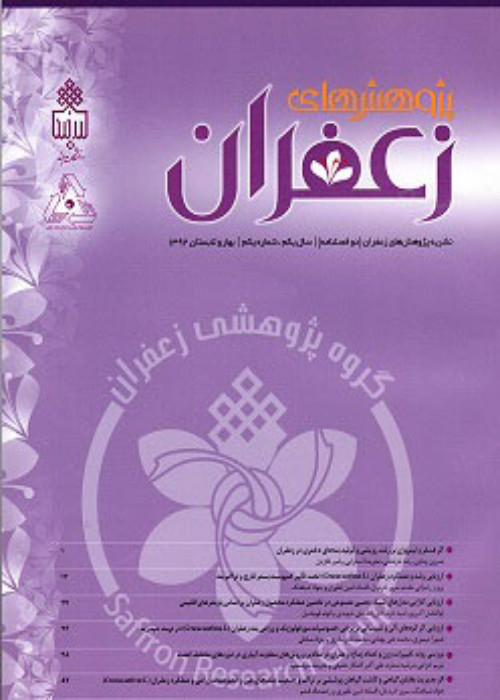Introduction of the Sustainable and Unsustainable Management Practices in Saffron Cultivation (Case Study: Gonabad Township)
The results show that saffron yield in Iran have decreased up to 44% during 1971-2017 which one of its reasons is unsustainable management of the cultivation. Therefore, the present study aimed at identifying sustainable and unsustainable agricultural practices in saffron cultivation in Gonabad township, enhancing the management and providing guidelines on future studies in the field of assessing sustainability status of saffron production. To achieve the objectives, a questionnaire was distributed among 101 experienced saffron farmers in Gonabad.After identifying important practices, the impact of these activities on the ecosystem sustainability was investigated. Afterwards, considering the necessity of avoiding unsustainable farming activities, the importance coefficient of these activities was calculated based on experts’ opinions (Delphi method) and Pairwise Comparison Matrix. Based on the results, five farming operations including manure application, agronomic diversity provided by intercropping and multi-cropping systems, use of micronutrient solutions and fertilizers, application of minimum tillage and organic fertilizers were categorized as sustainable operations. Also, seven activities including high use of chemical fertilizers, high-density planting, herbicides and chemical pesticides, flood irrigation, grazing on farms, human urine and feces and burning saffron residuals were categorized as unsustainable farming activities. From the viewpoint of the experts, the use of chemical fertilizers and high-density planting are recognized as the most unsustainable farming activities in saffron cultivation and the rest are in the next priorities. Therefore, undertaking appropriate policies in order to boost farmers’ attitudes towards sustainable agricultural practices and increasing the awareness of farmers about the negative and long-term effects of unsustainable farming practices, especially high use of chemical fertilizers and high-density of corm in saffron cultivation are essential to provide sustainability in the crop cultivation.
- حق عضویت دریافتی صرف حمایت از نشریات عضو و نگهداری، تکمیل و توسعه مگیران میشود.
- پرداخت حق اشتراک و دانلود مقالات اجازه بازنشر آن در سایر رسانههای چاپی و دیجیتال را به کاربر نمیدهد.


